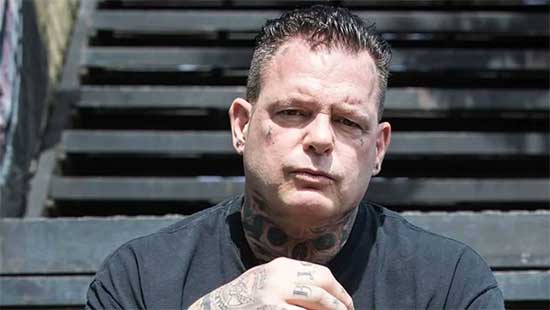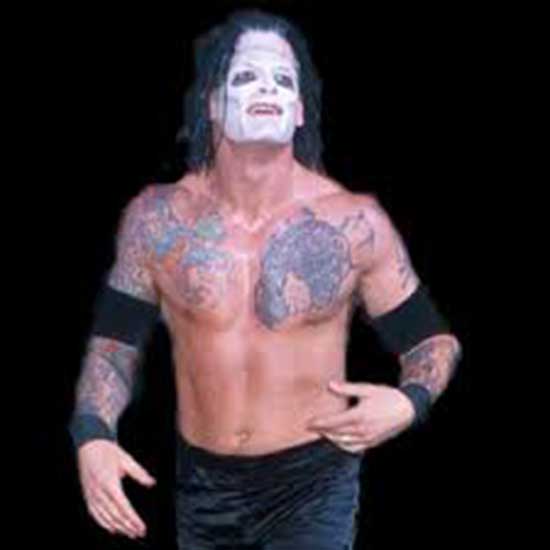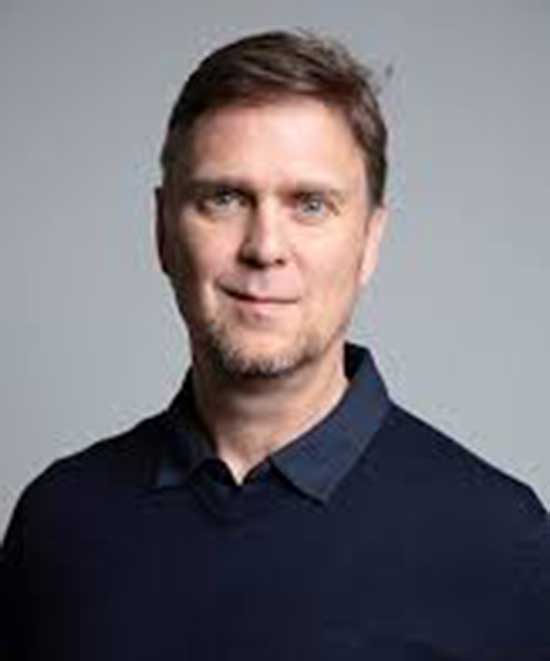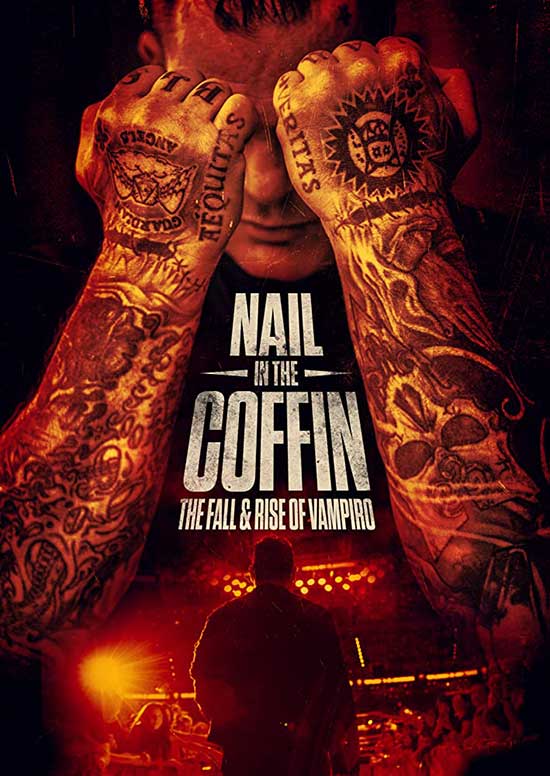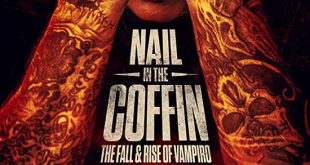Professional wrestling legend Ian Hodgkinson (Vampiro) and Director Michael Paszt took time to talk with Horrornews.net via zoom. They talked about the new incredible documentary about Ian’s life, Nail in the Coffin: The Fall & Rise of Vampiro.
Semi-retired professional wrestler Ian Hodgkinson reveals the harsh realities behind the glamour of being in the world of wrestling as the infamous ‘Vampiro’. A Lucha Libre legend, Hodgkinson tells the astonishing story about his meteoric rise to fame in the 90’s and how it almost killed him. Yet none of that was as back-breaking as his current life – working behind-the-scenes as the Director of Talent for Lucha Libre AAA in Mexico City and Lucha Underground in Los Angeles, while simultaneously raising his teenage daughter Dasha in remote Northern Canada as a single parent.
Unlike many professional wrestling documentaries before, director Michael Paszt has constructed a fascinating and heartfelt look at a wrestler who has overcome and continues to battle with physical injuries, sexual abuse, and drug addiction. Not to mention the wild stories of working for Milli Vanilli, and wrestlig alongside the punk rock band The Misfits – Vampiro’s stories are multi-faceted and completely enthralling.
Ian Hodgkinson (Vampiro) and Director Michael Paszt took time to talk with Horrornews.net via a zoom meeting.
Hello Ian, hello Michael. How are you both doing?
Michael- Good.
Ian- Hello.
Hi Ian. How are you?
Ian- I am doing good. Thank you.
Thank you both for taking the time to talk with me. (I will admit I got a little emotional. This documentary hit a nerve.) I watched this, maybe three times. It really hit me and especially your relationship with Dasha. My parents divorced when I was three but, they weren’t really together before that. My father has been in and out of my life but I did have like a stepdad growing up. I think that aspect of it and you talking about the genuine care that you have as a human being is incredible. Granted, Vampiro is legendary but as a human being you put heart and soul in this. It was great seeing that aspect of it and the genuineness of this documentary. (I was rambling but wanted to get my point across.) Why did you decide to do this Ian and Michael why did you decide to direct this?
Ian- I’ll let Michael do most of that. The only thing I want to say to you is, I’m very proud of you for being open, I’m proud of you for sharing that with everybody about your situation, that’s not easy to do. I know it hurts. I’m grateful that you trusted me enough and Michael enough to let us know about that. So, thank you for that. It’s specifically for that reason I’m okay with doing this kind of movie.
Michael- Thank you very much. I’ve known Ian on and off for years. When we reconnected and bumped into each other in the airport and hadn’t seen him in years. He told me what he was up to and he was living in Northern Ontario and he was flying to Mexico City and Los Angeles every single week to commute and then back on Sunday to have lunch ready for his daughter in the morning because he was a single dad. My mind was blown. I was like, oh my gosh, I can’t even imagine someone doing that when I complain about just going on the subway and this is what he’s doing. It’s all to support Dasha. It became the catalyst for the story, I have two daughters myself. It’s such an important part of the story for me. This sense of family and a love for your child. I wanted to tell that story.
When I was watching the documentary, I thought it was important that you added the injuries. I think it’s important to show because I don’t think people realize the toll it does take on your body. I just wanted to say, everything will be okay or get some rest. Some of us can never do that. Being responsible all the time and stuff. Was it important to talk about the injuries or too difficult or did it hinder you in life?
Ian- Not at all. What has happened though, over the last few weeks with all the interviews and listening to Michael’s answers, reviewing questions and things like that. I’ve come to realize that I was extremely selfish to the people around me that cared about me. Family… or, if I was in a relationship. They suffered more seeing me injure myself and not take care of myself. I’m glad that your pointing this out right now because I hope to use it in my speeches when I talk to younger talent. You need to be conscious that you might support the injuries because of the adrenaline, the machismo and all that kind of stuff. The people around you are the ones who pay the price. You taught me a lesson, so thank you.
Michael, when you decided to take on directing this project. What type of research did you have to do? There was so much emotional stuff covered, the stories, life stuff, career stuff. How did you sort of piece it together?
Michael- Thank you. I guess being a fan first. I was a fan of wrestling since I was five years old. I knew a fair amount of the backstory about Ian. The research part was already there. That parts not difficult, the difficult part about putting the film together was the budget. There was only two of us filming. That’s a challenge itself and the story took three years to tell. We were following him around Mexico, Los Angeles and Thunder Bay. We have an enormous amount of footage and an enormous amount of archive that we had to dig up. We had massive amounts of footage. The heart of the story has always been a father’s love for his daughter. Everything else is there, we had to cut through the weeds and kind of thread everything together. I was fortunate enough to work with Danny Palmer. He knew wrestling really well and he’s a great story-editor. So, between the two us we started talking and we found those threads that we had to put together.
I like the title also. I think it was interesting that it’s the Fall & Rise of Vampiro and not the Rise & Fall of Vampiro. I felt a lot of heart and compassion in this documentary. When you were putting everything together, how did you decide what to put in? Will there be a little more commentary for the Blu-Ray/DVD?
Michael- The Blu-Ray comes out, I forget when but we have some extra stuff on it. It offers even more insight. In general, again, I go back to Danny Palmer. There is a lot of stuff that didn’t make it.
What do you both want to say to the people who will be watching the documentary?
Ian- I hope they take more out of it than what they initially just see. What I mean by that and thank you for saying that and it is a great story between a man and his daughter but there’s a man who has mental health issues all around him that he’s overcoming and there’s a is a young teen girl who has mental health issues that she’s overcoming. There’s a gentleman, Michael who had a dream to make a movie, he’s in the film industry and this is his swing at that ball and he hit it out of the park. So, if you’re a writer, director, cameraman, a critic, film author, whatever it is you want to call yourself, whatever it is that you do. Hopefully that this movie will give you a lot more than somebodies commitment to his kid. I personally hope that it inspires people as much as possible in their chosen field or as a person.
Michael- Be passionate, be passionate about what you do. We are doing what we love, I think that’s first and foremost.
I’m so glad that you did talk about mental health because back in the day it wasn’t really talked about. It was sort of taboo and don’t talk about it. I loved the music aspect that you talked about so many different topics. Was it difficult to talk about everything? I think it helps people. You kind of go, oh okay, maybe it’s okay to talk about.
Ian- I appreciate that. Thank you. That’s one of the intentions to shine as much light on it as possible and now its part of everybody’s everyday life so I hope to do that.
Michael- Myself, not as much but I learned a lot through Ian.
I thank you both so much for taking the time to talk with me for Horrornews.net today. It was an honor. Thank you for making this documentary.
Michael- Thank you for everything. I appreciate it.
Ian- Thank you very much.
 Horror News | HNN Official Site | Horror Movies,Trailers, Reviews
Horror News | HNN Official Site | Horror Movies,Trailers, Reviews
